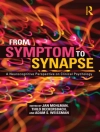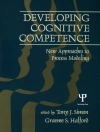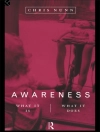Grounded in extensive research and clinical experience, this book describes how to adapt mindfulness-based cognitive therapy (MBCT) for participants who struggle with recurrent suicidal thoughts and impulses. Clinicians and mindfulness teachers are presented with a comprehensive framework for understanding suicidality and its underlying vulnerabilities. The preliminary intake interview and each of the eight group mindfulness sessions of MBCT are discussed in detail, highlighting issues that need to be taken into account with highly vulnerable people. Assessment guidelines are provided and strategies for safely teaching core mindfulness practices are illustrated with extensive case examples. The book also discusses how to develop the required mindfulness teacher skills and competencies. Purchasers get access to a companion website featuring downloadable audio recordings of the guided mindfulness practices, narrated by Zindel Segal, Mark Williams, and John Teasdale. (Published in hardcover as Mindfulness and the Transformation of Despair: Working with People at Risk of Suicide.)
See also Mindfulness-Based Cognitive Therapy for Depression, Second Edition, by Zindel Segal, Mark Williams, and John Teasdale, the authoritative presentation of MBCT.
Table of Content
1. Introduction
I. Theoretical and Research Background
2. The Origins of Despair: An Evolutionary Perspective
3. Why the Idea of Suicide Won’t Let Go
4. How Could Mindfulness Help?: Doing and Being
II. MBCT for Those at Risk of Suicide
5. Assessing Vulnerability to Depression and Suicidality
6. Developing the Preclass Interview: Encouraging Vulnerable Participants to Engage in and Persist with Mindfulness Meditation
7. Session 1: Awareness and Automatic Pilot
8. Session 2: Living in Our Heads
9. Session 3: Gathering the Scattered Mind
10. Session 4: Recognizing Aversion
11. Session 5: Allowing/Letting Be
12. Session 6: Thoughts Are Not Facts
13. Session 7: How Can I Best Take Care of Myself?
14. Session 8: Maintaining and Extending New Learning
15. How Does MBCT Enable Transformation?: Jane’s Story
III. Training Teachers and Defining Competence
16. MBCT Teaching Integrity: Assessing Mindfulness-Based Teaching Skills
17. The Experience of Being an MBCT Teacher
IV. MBCT–The Results
18. Mindfulness on Trial: Does MBCT Help People at Risk of Suicide?
Further Reading and Resources
References
About the author
Mark Williams, DPhil, is Professor of Clinical Psychology Emeritus at the University of Oxford Department of Psychiatry, where he was Founding Director of the Oxford Mindfulness Centre. He collaborated with John Teasdale and Zindel Segal in developing mindfulness-based cognitive therapy (MBCT) to prevent relapse and recurrence in major depression; together, they coauthored Mindfulness-Based Cognitive Therapy for Depression, Second Edition (for mental health professionals), as well as the self-help guides The Mindful Way Workbook and (with Jon Kabat-Zinn) The Mindful Way through Depression, Second Edition. Dr. Williams continues to train mindfulness teachers internationally.
Melanie Fennell, Ph D, is a Founding Fellow of the Oxford Cognitive Therapy Centre, where she is now an Associate Trainer. She is also an Associate Trainer at the Oxford Mindfulness Centre. As a research clinician in the University of Oxford Department of Psychiatry, she contributed to the development of evidence-based treatments for depression and anxiety disorders, including MBCT. She developed and led the Oxford Diploma in Cognitive Therapy, the Oxford Diploma/MSc in Advanced Cognitive Therapy Studies, and (with Mark Williams) the Oxford Master of Studies program in Mindfulness-Based Cognitive Therapy. Dr. Fennell is an Honorary Fellow of the British Association of Behavioural and Cognitive Psychotherapies (BABCP) and was voted “Most Influential Female UK Cognitive Therapist” by the BABCP’s membership in 2002.
Thorsten Barnhofer, Ph D, is Professor of Clinical Psychology at the University of Surrey, United Kingdom, where he conducts research into the use of mindfulness-based interventions for the prevention and treatment of mental disorders. He has a particular interest in the mechanisms by which mindfulness meditation benefits psychological and neural functioning. Previously, he worked in Mark Williams’s group at the Oxford Department of Psychiatry, where he was involved in research on MBCT for suicidal and chronic depression. A cognitive-behavioral therapist and yoga teacher, Dr. Barnhofer regularly teaches MBCT training workshops and retreats for mental health professionals.
Rebecca Crane, Ph D, MA, Dip Cot, is Director of the Centre for Mindfulness Research and Practice at Bangor University in Wales, and has led the development of its training programs since 2001. She previously worked in the mental health field as an occupational therapist and an integrative counselor. Dr. Crane teaches and trains internationally in both MBCT and mindfulness-based stress reduction (MBSR), and is a certified MBSR teacher with the Center for Mindfulness at the University of Massachusetts Medical School. She is the author of Mindfulness-Based Cognitive Therapy: Distinctive Features.
Sarah Silverton, Dip Cot, MEd, teaches at the Centre for Mindfulness Research and Practice at Bangor University, Wales. She has extensive experience as an occupational therapist, counselor, and mindfulness teacher and trainer. She is the author of The Mindfulness Breakthrough.












